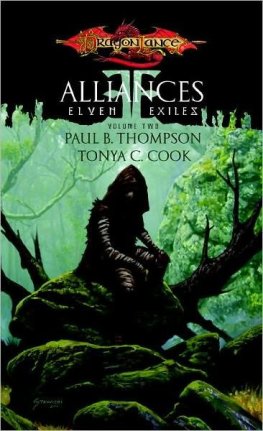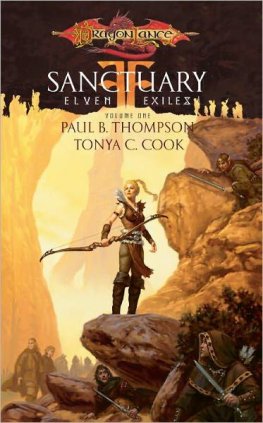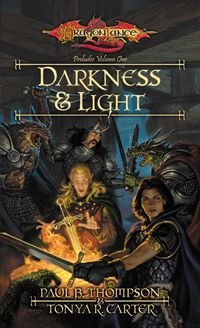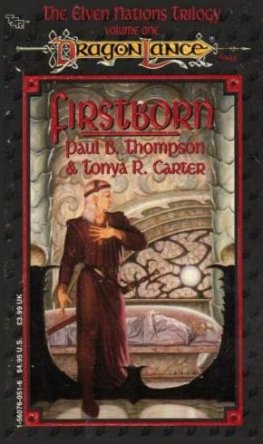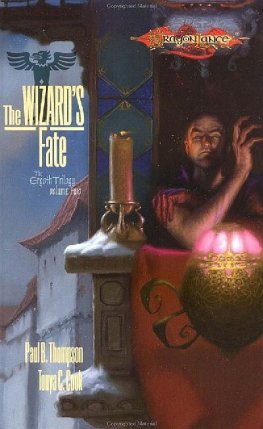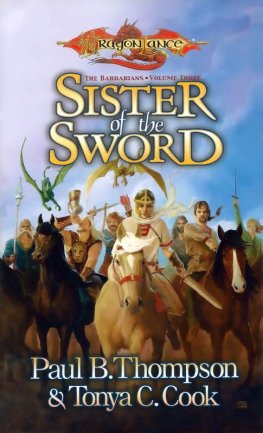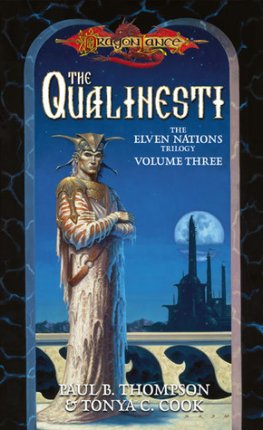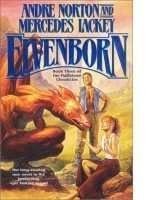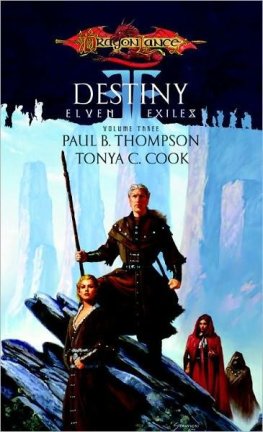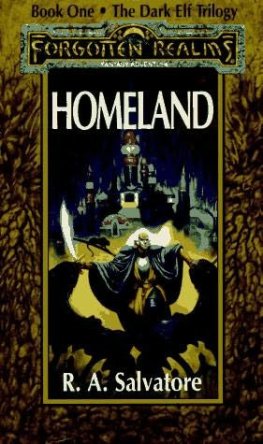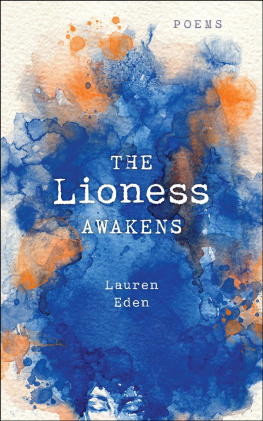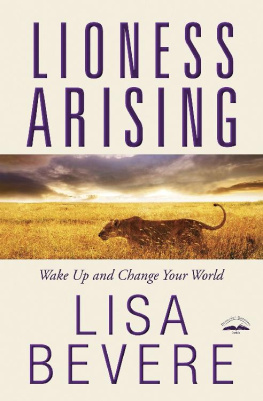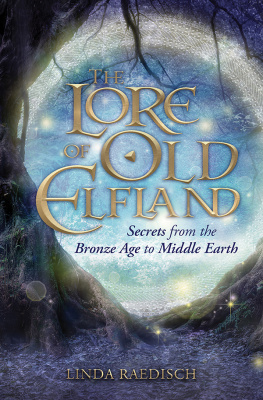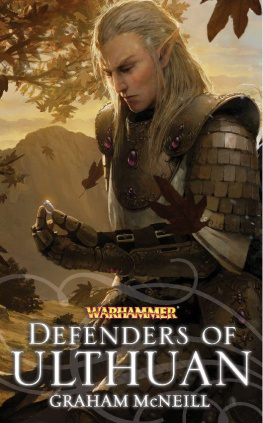Paul B. Thompson Tonya C. Cook
Alliances
Shadows gathered around. No amount of light would dispel them.
Kerianseray, seeking death, vanished in the blink of an eye. So too had the elves tenuous peace disappeared, like water spilled on the hot stone streets of Khuri-Khan. Gilthas Pathfinder, Speaker of the Sun and Stars, had tried to maintain peace as long as he could, but it evaded his grasp. His wife gone, concord lost, the Speakers only thought was to save his people. So he chased a shadow called Inath-Wakenti.
Adala Fahim, chief of the Weya-Lu tribe of Khurish nomads, pursued vengeance. The loved ones of her tribe had been slaughtered by a shadow which she saw in the shape of elves. So great was her anger, it took on a life of its own, a name of its own- maita, fate-and commanded the loyalty of numerous tribes.
Prince Shobbat plotted to replace his father, Sahim-Khan, on the throne of Khur. He made pacts with sorcerers and fanatics and traveled deep into the desert to see the shadows of the future. The Oracle of the Tree gave him the glimpse he craved, and it was far more than he had bargained for. The shadows entered his soul. In the fertile field of the princes treacherous mind, the shadows grew and multiplied until the light of reason was nearly extinguished.
A master plotter in his own right, Sahim-Khan bent the disparate elements of his kingdom to his will to preserve his unhappy guests, the elves. Sahim dreamed of great days for Khur, of triumphs on the battlefield, in the council chamber, and in the vibrant souks, where all manner of goods and services were sold. The seed of these dreams was the treasure the khan extracted from the Speaker. When shadows gathered from many sides to endanger the continuing supply of this treasure, Sahim dared the wrath of the elves enemies to safeguard their exit from his city. In such ways are heroes made, even heroes with the blackest hearts and basest motives.
Across the world more shadows gathered. A grieving queen would not give up the search for her lost king. An ambitious child sought to exceed the fame of her bloody father. A loyal warrior searched for the Speakers lost consort. A peerless bounty hunter stalked a hidden criminal. And entangled in the ghostly expanse of the Silent Vale, a scholar courted madness by trying to fathom a secret left behind by gods.
Of all these shadows, the longest and darkest was cast by a faceless, nameless being, delivered to deaths very doorstep. Cursed with a life he loathed, he must choose between oblivion and blessed obscurity, or glory and the endless terror of discovery.
Finally, one other had gone abroad to meet his destiny. Older than the trees, he followed in the footprints of the gods, striving to decipher the shadows they left behind five thousand years earlier. He intended that no one and nothing would stand in his way. Kingdoms and nations, the lives of thousands, were nothing compared to his final goal: eternity itself. The sun rose. Only the deepest shadows could remain.
No breath of breeze stirred among the trees. A dense canopy of leaves, parched by summer heat until they were brittle as glass, cast a perpetual shade on the forest floor. Although excluded, the sun made its presence felt. The air in the forest was stiflingly hot and still as a tomb. Birds did not sing, and nothing moved that could avoid moving.
A trail no wider than a horses hips was worn through the underbrush. It wound up hills and down hollows, following no discernible path. At an uncommonly straight stretch, the path ran along the foot of a hill, between a pair of lofty ash trees. The hill comprised shelves of broken slate, terraced down like a timeworn staircase to disintegrate at last into the dust of the narrow path.
A person occupied the last of the slate steps. Covered in a monkish robe despite the heat, he sat with his forearms resting on his knees, hands hidden in the robes capacious sleeves. His head was completely covered by a ragged cloth sack, loosely tied about his neck. Holes were cut out for his eyes. Rips and tears too numerous to count dotted the robes faded brown surface, each neatly darned or patched.
He had been sitting there, unmoving, unspeaking, for a very longtime. Where his robe touched the ground it clung, matted by leaf mold. Some who passed took him for a scarecrow. Others saw the stick thinness of his limbs, the knobby shape of his joints, and decided he must be a corpse. One or two, thinking to relieve the dead fellow of his purse, approached. They saw his eyes.
Staring from the sack, the eyes were not dead, but neither did they belong to a sane or peaceful being. The whites were shining and damp, as with tears, but the corners were as dry as dust. Set in them were pupils as hard as gems. When the eyes did blink, their lids were revealed to be mottled red, without any lashes at all.
Upon beholding those eyes, the would-be scavengers fled, calling on long-ignored gods for protection. Word spread that the lonely, ancient path was haunted. It was said the spirit of a murdered priest kept watch at the slate stairs, a man doomed by an unknown transgression never to rest. Soon enough, those few who trod the forest path abandoned it, finding other ways to their destinations. The trail had never been a popular one. It came from no place special and led nowhere worth going.
The one they feared no longer knew how many days he had sat there, enveloped by a stillness only the ignorant could mistake for tranquility. Neither man nor ghost, he was an elf. Silent and immobile as he appeared to the world, his mind was a maelstrom, boiling with memories of the journey that had brought him there.
* * * * *
Had it hurt to be burned alive, to feel the flames consuming his clothing, skin, hair, flesh? There were times he couldnt remember. The burning seemed a thing apart, sometimes as immediate and vivid as the dreams that sent him screaming into wakefulness, and at other times remote, a thing that had happened to someone else.
For an eon he had known only pain, coupled with an intense desire to live. He crawled away from where hed fallen, at first using only the tips of four fingers and a few toes. Three sunsets passed before hed dragged himself ten yards. Every grain of sand, every bit of leaf he slid over, was a knife, shredding his outraged flesh. He kept going until he fell into a shallow, clear-flowing brook. There he was born again. Chill water dampened the raging fire in his body and cooled-but did not extinguish-the fever in his mind.
He arose from the brook in the grip of an undeniable compulsion to go east. Home lay eastward, and he had to go home. There he would find succor. There the fire would be quenched at last.
He crawled out of the stream like a newborn salamander and turned to the rising sun. Living as an animal in the forest, he ate whatever he could find, whatever couldnt crawl away fast enough. As his damaged body couldnt bear the slightest touch of clothing, he went naked, garbed only in mud and leaf litter, or rain and air.
All that existed was the journey eastward. He grew strong enough to walk, but a new horror took shape in his mind: that others might see him as he was-mutilated, disfigured, destroyed. The very thought brought a shame so great he could scarcely breathe. No one must see him, not friend, foe, or stranger. He tried to steer clear of settlements and travelers, but his senses, ruined by the fire, no longer served him as they once had, and he learned then what shame really was.
One morning he was looting carrots from a garden when a dog found him. It circled, growling deep in its throat. He had never been afraid of dogs before, but slow and crippled as he was, the approach of the mongrel filled him with dread. When it drew too near, he flung dirt in its eyes. It shook off the grit and began to bark.

